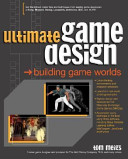Developing Puzzle Games Requires Experimentations
...you need fewer art assets to build a simple puzzle game. This is very good news for small developers, and for those just starting out in gaming. One or two people can build a world-class puzzle game. It would be next to impossible for one or two people to build a world-class third-person action game from scratch (and be finished by the end of the millennium). Puzzle games generally require puzzle pieces, such as blocks, widgets, shapes, or gizmos of some kind. Once you have built these objects and have them working in code, it’s easy to make new ones, and you don’t need complex organic character designs or advanced 3-D modeling techniques to do it.
Most puzzle games hinge on a “foundation” game mechanic—a spine, a heartbeat! Think about the simple beauty of Tetris: shapes and colors. We are challenged to arrange these shapes in an optimal way to accomplish something. It’s like playing with building blocks as a child. That exact kind of natural childhood play is a fertile field of puzzle game ideas. Time to wax nostalgic and harvest those ideas. Why did I like digging in the sand for hours and watching ants carve out tunnels inside a plastic cage?
[...]
Developing a puzzle game, then, usually requires some focused experimentation and revision. You start by experimenting with a particular idea you believe “captures” one of these fundamentals of play. You define the way you believe the game will work, and you experiment. There will be plenty of code tweaks. In time, players might like an “unanticipated” aspect of your game that isn’t even what you assumed would be the main point of the game. That’s okay. Go with it. Experiment. Listen. See where it leads—quickly. It’s through this revision process that you improve your game.
Notes:
The entry-bar for building a puzzle game is low because they don't require many complex graphics, but the rhythm and heartbeat of the game require playing with variables and tweaking ideas.
Folksonomies: game development
Taxonomies:
/hobbies and interests/games/board games and puzzles (0.712517)
/science/phyiscs/atomic physics (0.436943)
/art and entertainment/visual art and design/design (0.355680)
Keywords:
puzzle game (0.920975 (positive:0.078697)), simple puzzle game (0.773901 (positive:0.297575)), world-class puzzle game (0.762653 (positive:0.526336)), puzzle game ideas (0.721391 (positive:0.221372)), third-person action game (0.664253 (neutral:0.000000)), fewer art assets (0.662393 (positive:0.297575)), Puzzle Games (0.645753 (negative:-0.269731)), game mechanic—a spine (0.642142 (neutral:0.000000)), advanced 3-D modeling (0.630280 (positive:0.294342)), organic character designs (0.629968 (positive:0.294342)), good news (0.539279 (positive:0.506311)), small developers (0.539164 (positive:0.506311)), complex graphics (0.537699 (negative:-0.269731)), new ones (0.526013 (positive:0.441918)), optimal way (0.524697 (positive:0.816758)), exact kind (0.524216 (positive:0.850001)), revision process (0.521950 (negative:-0.384193)), natural childhood (0.520619 (positive:0.850001)), simple beauty (0.520400 (positive:0.722170)), particular idea (0.518439 (positive:0.469539)), main point (0.515686 (negative:-0.227863)), code tweaks (0.515394 (positive:0.579291)), shapes (0.485716 (positive:0.654437)), heartbeat (0.470397 (positive:0.288718)), blocks (0.449611 (neutral:0.000000)), experiment (0.447465 (neutral:0.000000)), time (0.442478 (neutral:0.000000)), people (0.440979 (positive:0.526336)), Experimentations (0.439337 (negative:-0.269731)), gizmos (0.431882 (neutral:0.000000))
Entities:
cage:Person (0.673360 (neutral:0.000000))
Concepts:
Experiment (0.975218): dbpedia | freebase | opencyc
Game (0.938520): dbpedia | freebase | opencyc
Puzzle (0.844718): dbpedia | freebase | opencyc
Toy (0.741817): dbpedia | freebase | opencyc
Puzzle video game (0.734881): dbpedia | freebase
Tetris (0.699237): website | dbpedia | freebase | yago
2004 singles (0.691480): dbpedia
Play (0.691450): dbpedia | freebase | opencyc





